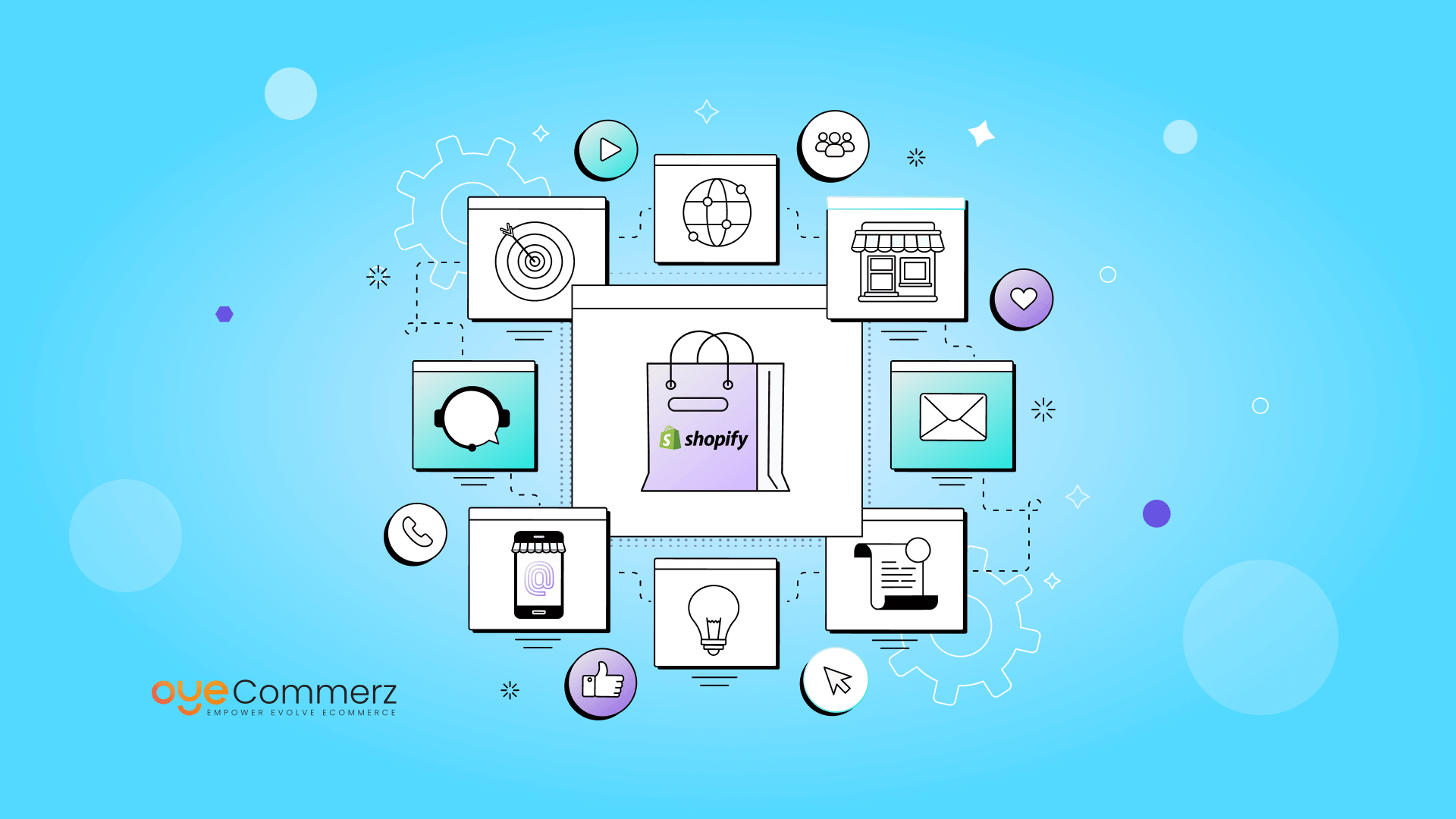Overview
In today’s cutthroat e-commerce environment, differentiating is essential, and a top method to differentiate a Shopify store is through custom app creation. A well-built Shopify app can enhance store capabilities, streamline operations, and elevate customer engagement. This guide explores essential elements of Shopify app development, covering API integration and app ecosystem to growth techniques and digital marketing approaches, providing a roadmap for businesses looking for unmatched store performance.
Why Shopify API Integration Matters
Shopify’s API offers robust tools to customize and extend store functionalities. With GraphQL and REST APIs, developers can retrieve information to create apps that handle inventory management, order handling, and customer information management seamlessly. Integrating Shopify’s API can enable improved workflow automation and enables stores to serve customers more effectively.
Utilizing the Polaris Design System
Shopify’s Polaris is Shopify's design system for creating intuitive and accessible Shopify apps. By adhering to Polaris guidelines, developers guarantee that apps seamlessly integrate within the Shopify Admin interface. This ensures a cohesive appearance that appeals to Shopify merchants, encouraging usability and comfort for merchants using your tailored app.
Understanding the Shopify App Ecosystem
The Shopify app ecosystem offers endless possibilities for enhancing online stores. From handling order fulfillment to increasing customer interaction, apps in this ecosystem are tailored to meet diverse business needs. Familiarizing with this ecosystem helps developers in identifying unique app opportunities and allows for seamless integration of third-party services that add value to the store.
Building Embedded Shopify Apps
Embedded apps integrate directly within the Shopify Admin, allowing a seamless experience for merchants. They ensure that merchants do not need to navigate away from their Shopify dashboard, streamlining their workflow. Using Shopify App Bridge and embedded app capabilities is a best practice for providing a cohesive, well-integrated user environment.
Using Node.js and React for Shopify Apps
The technologies Node.js and React have emerged as ideal tools for Shopify app creation. This server-side framework enables efficient server-side applications, while React allows for dynamic, responsive front-end design. Together, they provide an strong framework for building fast, scalable Shopify apps that improve store functionality and customer engagement.
Utilizing Webhooks in Shopify Development
Webhooks allow real-time data synchronization Unlocking Shopify app potential between Shopify and an external app. They initiate events such as new orders or inventory updates and send instant alerts to your app. By utilizing webhooks, apps can deliver real-time information to store owners, streamlining workflows and increasing efficiency.
Engaging Customers Through Digital Marketing for Shopify Apps
To make a Shopify app successful, engaging customers is crucial. Using digital marketing strategies like SEO, email marketing, and social media campaigns can increase app usage. Additionally, creating applications with customer engagement in mind (e.g., loyalty programs Develop Shopify apps with Node.js or personalized suggestions) boosts user retention and satisfaction.
Making Your Shopify App Scalable
As e-commerce businesses grow, so do their technological needs. Making sure that your app can scale to handle higher usage, larger data sets, and more complex functionalities is essential. By improving server resources and implementing scalable technologies, you can develop apps that expand in parallel to a store’s success.
Essential Features and Maintenance for Shopify Apps
For an app to be useful, it should include essential features like user login, dashboard analytics, and customer support options. Regular app upkeep, with updates to fix bugs and compatibility checks with new Shopify functionalities, is vital to maintain continuous operation and avoid interruptions to business processes.
Conclusion
Custom Shopify app development offers immense opportunities for e-commerce stores, providing the ability to improve performance, simplify operations, and foster customer loyalty. With API integrations and Node.js to ensuring scalability and customer interaction, creating a Shopify app requires careful planning and well-planned actions. If you’re ready to elevate your e-commerce experience, a custom Shopify app could be the ideal solution. What capabilities do you envision for your ideal app? Share your ideas and take the first step toward an optimized e-commerce experience!
